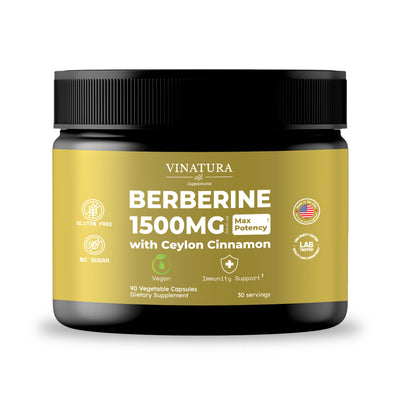
NAC Vs. Milk Thistle: Which is Better for Liver Health?
Are you seeking a safe, natural solution to support liver health and detoxify your body? NAC vs Milk Thistle are the two most prominent names that can be known. So, which is better for liver health: NAC or Milk Thistle? This article will provide necessary information about NAC vs. Milk Thistle and answer the question, can NAC vs. Milk Thistle be combined? Stay tuned for more details.
Before exploring further, please read the disclaimer located at the end of this webpage.
Key Takeaways
- NAC and Milk Thistle are natural supplements that potentially support human liver health.
- NAC works by replenishing glutathione, the most potent antioxidant in the body, which helps detoxify and reduce liver damage.
- Meanwhile, in Milk Thistle, the primary active ingredient extract is Silymarin, which helps reduce inflammation and protects and regenerates liver cells.
- Choosing NAC or Milk Thistle depends on your health condition. Currently, functional products combine NAC and Milk Thistle to enhance liver health.
What is NAC?

NAC's full name is N-Acetyl Cysteine, also known as Acetylcysteine. In other words, NAC is a Cysteine in supplement form [1].
Cysteine is an amino acid that plays a vital role in many biological functions of the body. Cysteine is classified as a semi-essential amino acid because the human body can synthesize some Cysteine independently. However, this synthesis is not enough for the body's needs. Therefore, supplementing Cysteine from outside foods is extremely necessary.
Cysteine can be supplemented through protein-rich foods such as chicken, yogurt, cheese, eggs, beans, nuts, etc., and functional foods that supplement Cysteine in NAC.
Read more: Tudca Vs. Milk Thistle: Can You Take Them Together?
What are the NAC Benefits for Health?

NAC is known for its many potential health benefits to humans, including:
- Supports liver health: This is the most prominent benefit of NAC for human health. NAC can help detoxify the liver by increasing the production of Glutathione, a powerful antioxidant. Besides, Glutathione also helps the liver eliminate toxic substances such as alcohol and chemicals. Based on a study conducted on 150 alcoholics, NAC supplementation for eight weeks significantly reduced liver enzymes AST and ALT compared to the control group [2].
- Enhance respiratory health: NAC also helps reduce asthma and chronic bronchitis symptoms in humans. Specifically, NAC dilutes mucus and reduces respiratory inflammation, thereby improving shortness of breath, wheezing, and chest tightness,... [3]
- Enhance brain health: Another benefit of NAC is that it reduces the risk of brain degeneration and supports the treatment of mental disorders. Because it produces the antioxidant Glutathione, NAC helps protect brain cells from free radical damage. This reduces the risk of degenerative brain diseases such as Alzheimer's and Parkinson's [4].
NAC Side Effects and Interaction
NAC is generally considered safe for adults when taken in large prescription doses. However, some side effects, such as nausea, diarrhea, constipation, etc., may occur when consuming high doses of NAC. Even using high doses of NAC for a long time can cause conditions such as runny nose and chest tightness.
Note, for people who are using blood thinners, antihypertensive drugs, or anti-cancer drugs, it is recommended not to use NAC before a doctor's prescription because NAC can increase the risk of bleeding when used with medications such as warfarin and heparin.
What is Milk Thistle?

Milk Thistle, scientifically known as Silybum Marianum, is a flowering plant belonging to the Asteraceae family. Milk Thistle is a herbaceous plant with leaf edges that have yellow, very sharp spines. The flowers of the Milk Thistle plant are purple, and the fruit is oval, black, and shiny with yellow veins. Milk Thistle was initially found in the Mediterranean region and spread to countries in Asia, America, and Europe today.
Milk Thistle seed extract contains about 4-6% Silymarin, a complex of complex compounds of the Flavonolignan molecule, including Silybin A, Silybin B, Isosilybin A,... [5]
Silymarin, found in Milk Thistle seed and fruit extract, has many health benefits and has been used in traditional medicine for thousands of years. Typically, to support liver health, maintain healthy cholesterol levels,...
Read more: 8 Best Milk Thistle Supplements for Liver Health
What are the Milk Thistle Benefits for Human Health?

Similar to NAC, Milk Thistle offers many potential health benefits to humans, including:
- Protects, detoxifies, and supports liver diseases: This benefit must be noticed when mentioning Milk Thistle. Research has shown that Silymarin found in Milk Thistle effectively reduces liver damage. It acts as an antioxidant, helping to limit the production of free radicals. From there, Milk Thistle protects and supports the liver's detoxification function [6].
- Supports cancer treatment: Some previous studies conducted on animals have shown that Silymarin extract effectively reduces the side effects of chemotherapy and radiotherapy in cancer treatment [7].
- Diabetes control: Researchers studying Milk Thistle have also discovered that Silymarin and other compounds found in Milk Thistle work with the exact mechanism as drugs to support diabetes. It may help support improved insulin sensitivity and reduced blood sugar levels [8].
Milk Thistle Side Effects on Human Health
Milk Thistle is considered safe for children and adults, even pregnant and breastfeeding women when used appropriately. However, side effects such as diarrhea, nausea, bloating, and loss of appetite have also been recorded at a mild level.
It is essential to consult a medical professional when taking medication to reduce breast cancer, uterine cancer, and ovarian cancer. And when there is a history of allergies to plants in the Milk Thistle family, such as chrysanthemums, marigolds, ragweed, etc.
NAC Vs. Milk Thistle: Which Is Better for Liver Health?
Both NAC and Milk Thistle are good options to support liver health. However, each type will have characteristics suitable for different human health conditions.
- Commonalities: Both NAC and Milk Thistle increase the production of powerful antioxidants, helping to protect liver cells from toxins, alcohol, and harmful chemicals. Both are effective in supporting liver diseases such as fatty liver, viral hepatitis, and cirrhosis.
- Differences: Below is a table summarizing the differences between NAC and Milk Thistle so you can easily consider using:
| Characteristic | NAC | Milk Thistle |
| Main active ingredient | Cysteine | Silymarin |
| Mechanism of action | Enhances Glutathione production | Protects liver cells, reduces inflammation |
| Effective | Highly effective in liver detoxification and liver poisoning | Suitable for long-term liver treatment |
| Side effects | Nausea, diarrhea, chest tightness | Vomiting, headache, indigestion |
| Drug interactions | Blood thinners, cancer medications | Medicines to reduce breast, cervical, and ovarian cancer |
| Suitable for | People with liver poisoning, alcoholism, people with fatty liver | People with hepatitis, cirrhosis, liver cancer |
Can You Combine NAC and Milk Thistle?

The answer is Yes. Combining NAC and Milk Thistle as a dietary supplement is considered safe and may provide better results for liver health. Because NAC and Milk Thistle combination supplements are often formulated in specific doses, they are more effective in promoting liver health and supporting the treatment of liver diseases such as fatty liver, hepatitis, and cirrhosis.
How to Use NAC and Milk Thistle Together?
NAC and Milk Thistle can be combined as a supplement with a dosage of no more than 600 mg daily. NAC and Milk Thistle can be combined at any time of the day.
However, it is best to drink it 30 minutes before eating or 1 hour after meals for maximum effectiveness.
Note that you must buy NAC and Milk Thistle products from reputable brands with clear origins and origins. In particular, it is necessary to use the correct dosage according to the opinion of specialized doctors and comply with contraindications to ensure safety and effectiveness.
Are There Side Effects of NAC and Milk Thistle When Taken Together?
The answer is that there are no dangerous side effects or drug interactions when combining NAC and milk thistle. As mentioned above, both NAC and Milk Thistle are safe when used in recommended doses. However, some people may experience side effects such as nausea, diarrhea, or constipation. Be sure to contact the nearest medical facility immediately if these symptoms become worse.
Conclusion
NAC and Milk Thistle are promising and potent natural options for supporting liver health. NAC vs Milk Thistle, which is better, depends on your health condition and should be discussed with your doctor. Besides, it can be combined with a healthy diet and lifestyle to ensure the best results in improving liver function.
References
- [1] Chun, L. J., Tong, M. J., Busuttil, R. W., & Hiatt, J. R. (2009). Acetaminophen Hepatotoxicity and Acute Liver Failure. Journal of Clinical Gastroenterology, 43(4), 342–349. https://doi.org/10.1097/mcg.0b013e31818a3854
- [2] Morley, K. C., Baillie, A., Van Den Brink, W., Chitty, K. E., Brady, K., Back, S. E., Seth, D., Sutherland, G., Leggio, L., & Haber, P. S. (2018). N-acetyl cysteine in the treatment of alcohol use disorder in patients with liver disease: Rationale for further research. Expert Opinion on Investigational Drugs, 27(8), 667–675. https://doi.org/10.1080/13543784.2018.1501471
- [3] Mokra, D., Mokry, J., Barosova, R., & Hanusrichterova, J. (2023). Advances in the Use of N-Acetylcysteine in Chronic Respiratory Diseases. Antioxidants, 12(9), 1713. https://doi.org/10.3390/antiox12091713
- [4] Tardiolo, G., Bramanti, P., & Mazzon, E. (2018). Overview on the Effects of N-Acetylcysteine in Neurodegenerative Diseases. Molecules, 23(12). https://doi.org/10.3390/molecules23123305
- [5] Abenavoli, L., Capasso, R., Milic, N., & Capasso, F. (2010). Milk Thistle in liver diseases: past, present, future. Phytotherapy Research, 24(10), 1423–1432. https://doi.org/10.1002/ptr.3207
- [6] Milk Thistle (Silybum marianum) for the therapy of liver disease. (2021). The American Journal of Gastroenterology, 93(2), 139–143. https://doi.org/10.1016/S0002-9270(97)00082-8
- [7] Gillessen, A., & Schmidt, H. H.-J. . (2020). Silymarin as Supportive Treatment in Liver Diseases: A Narrative Review. Advances in Therapy, 37(4), 1279–1301. https://doi.org/10.1007/s12325-020-01251-y
- [8] Kazazis, C. E., Evangelopoulos, A. A., Kollas, A., & Vallianou, N. G. (2014). The Therapeutic Potential of Milk Thistle in Diabetes. The Review of Diabetic Studies, 11(2), 167–174. https://doi.org/10.1900/rds.2014.11.167
Author

Product Disclaimer
Including an ingredient or study does not evaluate, endorse, or recommend any Vinatura product or any third-party product. Some ingredients discussed may not be used in any Vinatura product.
The content of the articles has not been evaluated by the Food and Drug Administration (FDA) and is not intended to promote or endorse any specific product. Any products sold on this website are not intended to diagnose, treat, cure, or prevent any disease.
Opinions and Endorsements
Any claims, statements, or opinions expressed in the articles are those of the author(s) and do not necessarily reflect the views or opinions of the manufacturers of the dietary supplement products. The products sold on this website are separate from the content of the articles and are not directly endorsed or associated with the information presented here.
Liability Disclaimer
The author(s) of the articles, website, and manufacturers of the dietary supplement products do not assume any liability for any potential consequences arising from the use of the information provided in the articles. Ingredient effects, dosages, and safety vary by individual, formulation, and context; some ingredients interact with medications or may be unsuitable during pregnancy or lactation. It is recommended that individuals consult with a qualified healthcare professional before making any dietary or lifestyle changes, including the use of dietary supplements.
Product Usage
Please refer to the product labels and packaging for specific usage instructions and guidelines for the dietary supplement products sold on this website.
Customer Support
For any concerns or questions regarding the dietary supplement products, please contact our customer support team, who will be more than happy to assist you.





Leave a Comment
Be the first to comment.
What do you think?